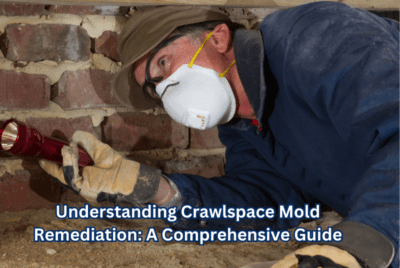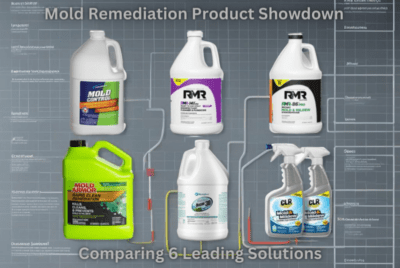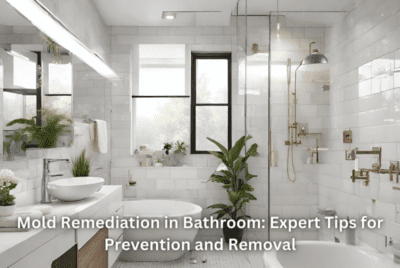Can Mold Cause Cancer? Debunking Myths and Understanding the Real Risks
Mold, a common household nuisance, often raises concerns about its potential health risks. As someone keen on understanding mold’s impact, you might wonder: Can mold cause cancer? In this comprehensive guide, we will navigate through the labyrinth of misinformation to provide you with accurate insights. Mold-related issues can strike anyone, from homeowners to business proprietors, and understanding the facts is crucial for safeguarding health and property.
Key Takeaways:
- Mold is a prevalent concern in various properties, but the link between mold and cancer is often misunderstood.
- Mold exposure can lead to respiratory problems and allergies, but the direct connection to cancer is not well-supported by scientific evidence.
- Mycotoxins produced by certain molds may raise concerns, but not all mycotoxins are carcinogenic, and their presence in indoor environments is usually minimal.
- By focusing on prevention, maintaining indoor air quality, and seeking professional help when necessary, you can effectively manage mold-related concerns.
What is Mold and Where Does it Grow?
Mold is a type of fungus that thrives in damp and humid environments. It reproduces through spores and can grow on various surfaces, including walls, ceilings, and even fabrics. Understanding the conditions that foster mold growth is essential for prevention. Moisture-prone areas like bathrooms, kitchens, and basements are particularly susceptible.
The Link Between Mold and Health Issues
Respiratory Problems and Allergies
Exposure to mold spores can trigger a range of health issues, primarily affecting the respiratory system. Individuals with allergies might experience sneezing, coughing, and irritated eyes when exposed to mold. Those with asthma can see their symptoms worsen. While these reactions can be distressing, it’s important to differentiate between these effects and more severe health concerns.
Myth: Mold and Cancer Connection
A common misconception is the direct link between mold and cancer. However, scientific research has not definitively established this connection. The rumors often stem from the fear that mycotoxins produced by certain molds might be carcinogenic. Yet, mycotoxins are usually present in small quantities and are not an immediate threat to most people.
Understanding Cancer-Causing Substances
Cancer development is a complex process often associated with exposure to specific carcinogens. Carcinogens are substances that have been proven to cause cancer. While some molds do produce mycotoxins, it’s crucial to note that not all mycotoxins are carcinogenic. In-depth research is necessary to determine whether specific molds or mycotoxins can indeed lead to cancer.
Taking Charge of Your Health and Home
By staying informed and adopting preventive measures, you can take charge of your health and home. While mold is not a direct cause of cancer, its impact on air quality and respiratory health is undeniable. Be proactive in maintaining a dry environment, addressing moisture issues, and seeking professional assistance when needed.
Conclusion
In conclusion, while the internet may propagate fears of a direct mold-cancer connection, the scientific evidence does not fully support this notion. Mold exposure can certainly cause respiratory issues, but the leap to cancer is not substantiated. By staying informed, maintaining a clean and dry environment, and seeking professional help when necessary, you can mitigate the risks associated with mold growth.
FAQs
- Can mold exposure lead to cancer?
There’s no conclusive evidence linking mold exposure to cancer. The primary health concerns are respiratory issues and allergies. - Are all molds dangerous?
No, not all molds are dangerous. Some molds can produce toxins, but they are not an immediate threat to most individuals. - How can I prevent mold growth in my home?
Regular cleaning, maintaining low indoor humidity, and promptly addressing leaks are effective preventive measures. - Should I be worried about mycotoxins?
Mycotoxins are a concern, but their presence in most indoor environments is minimal. It’s best to focus on overall prevention. - When should I seek professional mold removal services?
If you notice extensive mold growth or have underlying health conditions, it’s wise to seek professional help for safe and thorough removal.
Note: This article is based on personal research and knowledge and should not substitute professional medical advice. Consult a healthcare provider for specific concerns.




